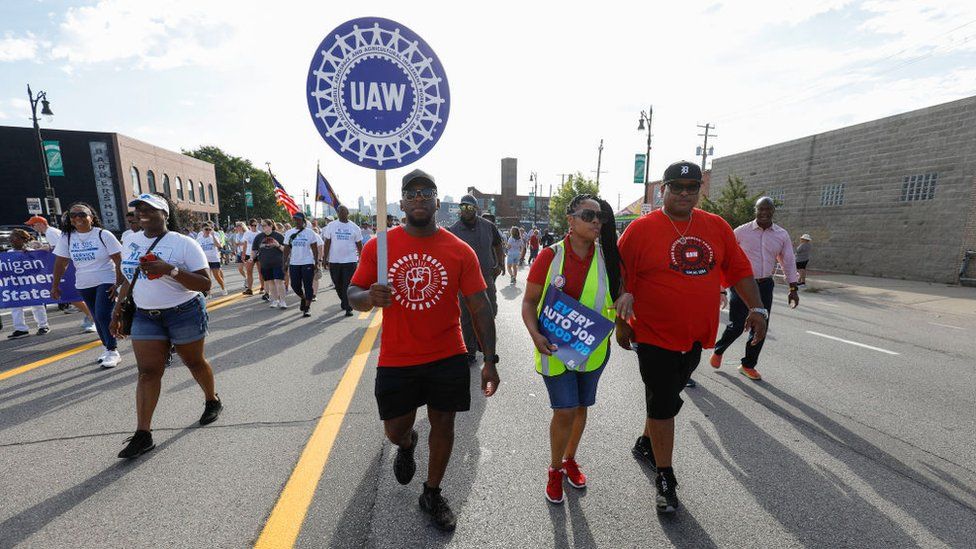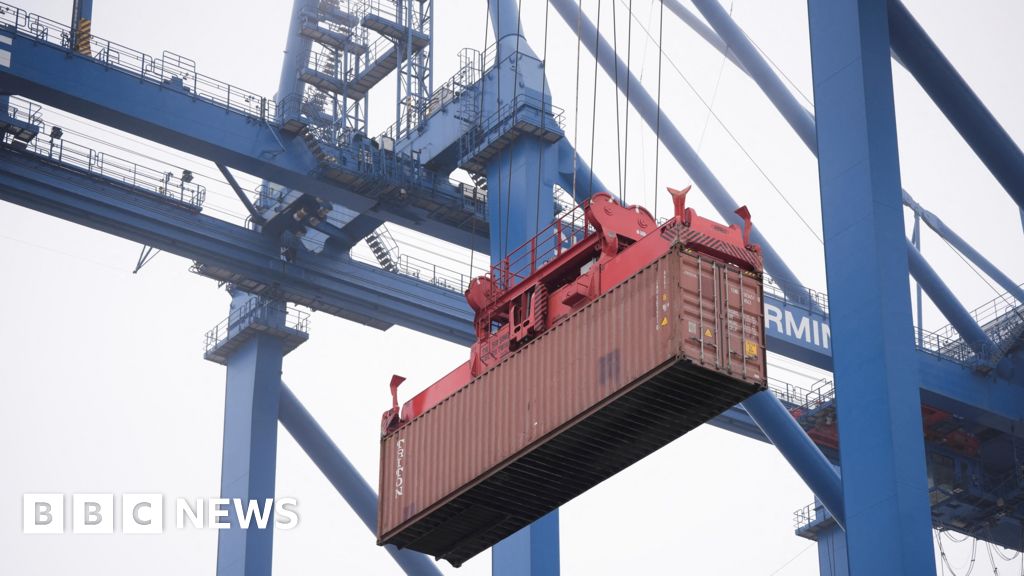ARTICLE AD BOX
 Image source, Getty Images
Image source, Getty Images
Staff at three of America's biggest carmakers are poised to strike in an unprecedented co-ordinated action.
With current labour contracts set to expire on Thursday night, the United Autoworkers Union said the companies had not put forward acceptable offers.
The fight threatens to trigger higher prices for buyers and major disruption for the firms: GM, Ford and Stellantis.
The UAW said the likely strike would start on Friday at a small number of sites - with the potential to expand.
"We are seeing movement from the companies, but they're still not willing to agree on the kinds of raises that will make up for inflation on top of decades of falling wages," UAW president Shawn Fain said on Wednesday in an update to workers.
The union had sought a 40% pay increase for its roughly 140,000 members over four years, noting a comparable rise in pay for company leaders.
- a four-day working week
- the return of automatic pay increases tied to inflation
- stricter limits on how long workers can be considered "temporary" staff who do not receive union benefits
Talks between the two sides, which kicked off in July, were tense from the start, with Mr Fain forgoing the symbolic handshake with executives that has traditionally launched negotiations.
The three companies have upped their initial proposals, with Ford offering a 20% hike in pay over the contract term, GM offering 18%, and Stellantis, the owner of Jeep and Chrysler, 17.5%, Mr Fain said.
He said the companies could afford to be more generous, after years of record profits.
Mr Fain, who was elected to his position just a few months ago promising to take on the companies, cast the fight in biblical terms, saying it was part of a broader battle with the billionaire class and an act of faith that change was possible.
Image source, Getty Images
Image caption,UAW president Shawn Fain declined the traditional handshake with company executives at the start of negotiations
"We fight for the good of the entire working class and the poor," he said. "We're not the problem... corporate greed is the problem."
Jim Farley, chief executive of Ford, told reporters earlier this week that he hoped to avoid a strike but there was a limit to what the company was willing to concede.
"We have to protect the sustainability of the company," he said.
US carmakers are already grappling with a sales slowdown and costs associated with new investments as they shift production to electric vehicles.
A 10-day strike by all workers at the three firms could cost the car companies nearly $1bn (£800m) and workers nearly $900m in lost wages, according to estimates by the Anderson Economic Group. It said the total economic hit could amount to roughly $5bn, as the effects of the strike spread.
Coming into the strike, the supply of cars, which has been strained since the parts shortages of the pandemic, remains far lower than it has been in the past.
Analysts said that could mean a prolonged walkout quickly translates into higher prices for buyers.
Ford, GM and Stellantis together account for about 40% of US car sales, though their share has dropped sharply over the last quarter of a century, as foreign firms such as Toyota make inroads.
Those companies have successfully fended off unionisation campaigns and face lower labour costs.
But labour tensions in the US have been rising, as pay hit by rising prices and a tight labour market embolden workers.
Last year, there were more than 420 work stoppages, up more than 50% from the prior year, according to research from Cornell University.
Delivery giant UPS narrowly avoided a walkout earlier this year, and writers and actors in Hollywood remain on strike.
The last time the car industry faced a strike was in 2019, when workers at General Motors walked off the job for six weeks.

 1 year ago
28
1 year ago
28








 English (US)
English (US)